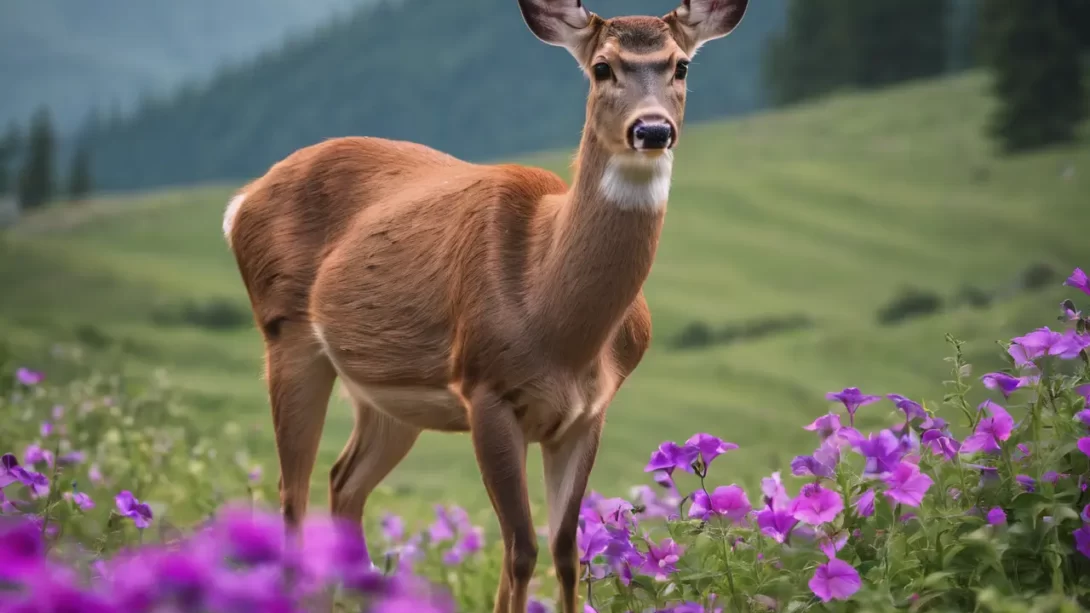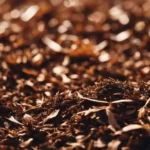Gardens are a wonderful blend of human creativity and natural beauty, often attracting a variety of wildlife. Among these visitors are deer, known for their curious nature and indiscriminate eating habits. This raises a question for many gardeners: will deer eat petunias? Understanding the preferences of deer is crucial for garden planning, especially for those who love the vibrant charm of petunias. In this article, we delve into the relationship between deer and petunias, offering insights and strategies to keep your garden flourishing.
Deer Feeding Habits
Deer are opportunistic feeders with a diet that varies across seasons and environments. In the wild, they primarily consume leaves, stems, fruits, and nuts, but in residential areas, they often adapt to whatever is available. This adaptability can lead to gardens becoming unintended buffets for these graceful creatures. The diet of deer is influenced by several factors, including seasonal changes, food availability, and even human activities. Recognizing these patterns is the first step in understanding the likelihood of deer feasting on your petunias.
In spring and summer, deer often seek out tender shoots and young leaves, which are abundant in gardens. During fall and winter, they shift towards woody plants and bark, as other food sources become scarce. However, if a garden offers enticing options like ornamental plants or vegetables, deer might continue to visit regardless of the season. Additionally, urban expansion and habitat changes have prompted deer to explore human-dominated areas more frequently, increasing the likelihood of encounters between deer and garden plants.
Petunias: A Deer’s Delight or Not?
Petunias, with their vibrant colors and enticing fragrance, are a popular choice for gardeners seeking to add a splash of color. But do these characteristics make petunias a target for deer? The answer is not straightforward. While deer are known to be less picky in areas where food is scarce, they do have preferences. Some gardeners report that their petunias are frequently nibbled on by deer, while others find them untouched.
The variability in deer behavior makes it challenging to predict their interest in petunias. Factors such as local deer population, availability of alternative food sources, and even individual taste preferences of deer can influence their attraction to petunias. To get a clearer picture, it’s helpful to consider insights from wildlife experts and fellow gardeners who have observed deer interactions with petunias in different settings.
Factors That Influence Deer Attraction to Petunias
Understanding what attracts deer to petunias can be key in protecting these plants. The scent and color of petunias are significant factors. Deer have a strong sense of smell, which guides them to fragrant flowers. Petunias, known for their sweet aroma, can thus be more visible to deer. Additionally, the bright colors of petunias might catch the attention of deer, although their color vision is not as developed as humans’.
The location of petunia plantings in your garden also plays a role. Petunias planted near the periphery of a property or close to known deer paths are more likely to be eaten. Conversely, petunias situated closer to the house or in less accessible areas might be less disturbed. Furthermore, the overall maintenance of your garden can impact deer visits. Regularly watering and fertilizing your petunias makes them more lush and potentially more appealing to deer.
Protecting Petunias from Deer
If you’re facing challenges with deer in your garden, there are several effective strategies to protect your petunias. One of the most reliable methods is physical barriers. Fencing can be a great solution, but it needs to be high enough (at least 8 feet) as deer are excellent jumpers. For a less obtrusive option, consider individual plant cages or protective netting around your petunias.
Using repellents is another common approach. There are various commercial deer repellents available, which work by either emitting a scent that deer find unpleasant or by making the plants taste bad. It’s important to follow the instructions carefully and reapply as needed, especially after rain. Additionally, some gardeners have success with homemade repellents, like a mixture of garlic, eggs, and water.
Integrating deer-resistant plants into your garden can also help. While no plant is completely deer-proof, some are less appealing to deer than others. Planting these around your petunias can create a natural barrier. Examples of deer-resistant plants include lavender, marigolds, and certain herbs like sage and rosemary. Not only do these plants deter deer, but they also add variety and fragrance to your garden.
Container gardening is a fantastic alternative for those with limited space or high deer activity. Growing petunias in pots or elevated planters can keep them out of reach of deer. This approach also offers the flexibility to move your plants to safer spots if deer become a problem.
Alternative Deer-Resistant Plants
In addition to employing strategies to protect petunias, it’s beneficial to consider incorporating deer-resistant plants into your garden. These plants can offer a similar aesthetic appeal while reducing the risk of deer damage. A variety of flowers, shrubs, and herbs are known for their resistance to deer, often due to their strong scents, textures, or flavors that deer find unappealing.
Some popular deer-resistant alternatives include snapdragons, zinnias, and salvia. Snapdragons provide a burst of color similar to petunias and are generally less palatable to deer. Zinnias, with their bright, daisy-like flowers, are another excellent choice for adding vibrancy to your garden without attracting deer. Salvia, known for its aromatic leaves and spikes of flowers, can also be a great addition, offering both beauty and deer deterrence.
When choosing deer-resistant plants, consider the overall design and theme of your garden. Look for plants that complement your existing garden layout in terms of color, texture, and height. Diversifying your garden with a mix of deer-resistant plants can create a visually appealing landscape that’s more likely to remain intact despite the presence of deer.
Conclusion
The question of whether deer will eat petunias in your garden depends on various factors, including local deer population, garden maintenance, and the presence of alternative food sources. While petunias can be at risk, understanding deer behavior and implementing effective strategies like physical barriers, repellents, and the use of deer-resistant companion plants can significantly reduce the likelihood of damage.
Embracing a variety of plants, both deer-resistant and those like petunias, allows for a diverse and vibrant garden. The key is to balance your aesthetic desires with practical measures to coexist with local wildlife. By doing so, you can enjoy the beauty of petunias and other favorites, while maintaining a harmonious relationship with the natural world surrounding your garden.



